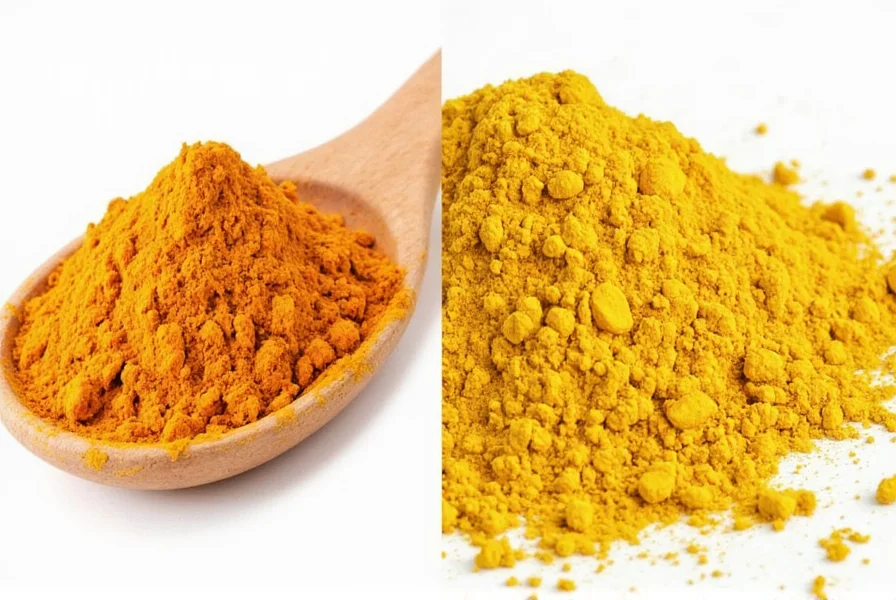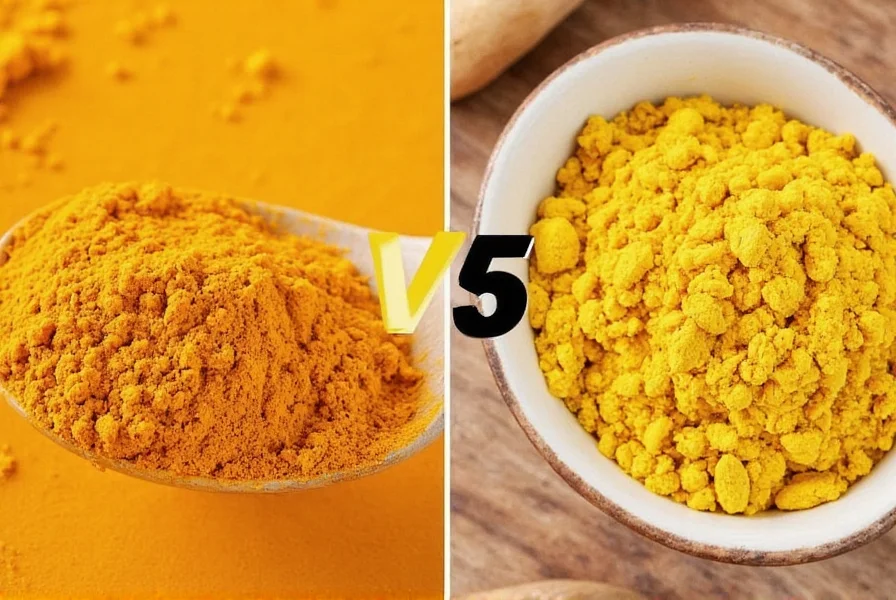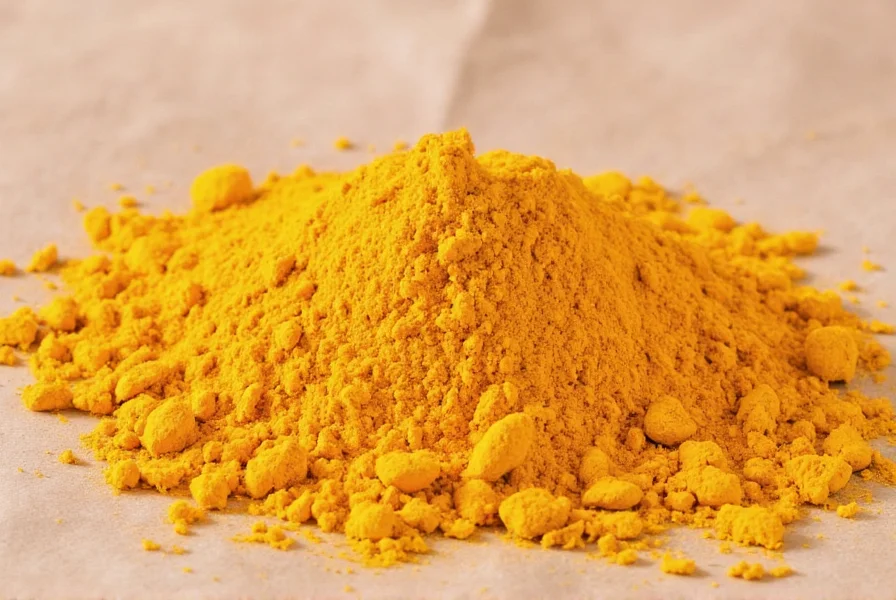Understanding the distinction between turmeric powder and curcumin is essential for making informed decisions about incorporating these substances into your wellness routine. Many consumers mistakenly use these terms interchangeably, potentially missing out on optimal health benefits or misunderstanding dosage requirements.
What Exactly Is Turmeric Powder?
Turmeric powder represents the traditional form of this ancient spice, created by drying and grinding the rhizomes of the Curcuma longa plant. This vibrant yellow-orange powder contains over 100 different compounds, with curcuminoids making up approximately 2-8% of its composition. The primary curcuminoids include curcumin (diferuloylmethane), demethoxycurcumin, and bisdemethoxycurcumin.
When you purchase turmeric powder from the grocery store, you're getting the complete phytochemical profile of the turmeric root. This includes not only curcuminoids but also essential oils like turmerone, which may contribute to turmeric's overall health effects through what scientists call the "entourage effect"—where multiple compounds work together synergistically.
Understanding Curcumin: The Active Compound
Curcumin specifically refers to the most studied and bioactive curcuminoid compound found within turmeric. It's responsible for turmeric's distinctive yellow color and accounts for about 75% of the curcuminoid content in turmeric root. Scientific research has primarily focused on curcumin due to its potent anti-inflammatory and antioxidant properties.
Most curcumin supplements contain standardized extracts with 95% curcumin content, representing a significant concentration compared to natural turmeric powder. However, curcumin faces a well-documented challenge: poor bioavailability. When consumed alone, curcumin is rapidly metabolized and eliminated from the body, with studies showing minimal absorption into the bloodstream.
| Characteristic | Turmeric Powder | Curcumin Supplement |
|---|---|---|
| Curcumin Content | 2-8% of total weight | Typically 95% standardized extract |
| Other Compounds | Essential oils, fibers, additional curcuminoids | Often includes absorption enhancers (piperine, lipids) |
| Typical Daily Dose | 1-3 grams (½-1½ teaspoons) | 500-2,000 mg of curcumin |
| Bioavailability | Naturally low, enhanced when consumed with fats | Enhanced formulations improve absorption 10-20x |
| Primary Use | Culinary applications, general wellness | Targeted therapeutic applications |
Key Differences Between Turmeric Powder and Curcumin
The fundamental difference between turmeric powder vs curcumin lies in their composition and concentration. Turmeric powder contains the full spectrum of compounds found in the turmeric root, while curcumin represents a single, highly concentrated compound extracted from that root.
When evaluating turmeric spice vs curcumin supplement effectiveness, consider these critical factors:
Concentration and Potency
To obtain 500 mg of curcumin from turmeric powder, you would need to consume approximately 6-25 grams of the powder—far exceeding typical culinary usage. This explains why researchers studying therapeutic effects almost exclusively use concentrated curcumin extracts rather than whole turmeric.
Bioavailability Considerations
Both forms face bioavailability challenges, but curcumin supplements often include specialized formulations to address this. Common enhancement strategies include:
- Combination with piperine (from black pepper), which can increase absorption by up to 2,000%
- Liposomal or nanoparticle delivery systems
- Binding to phospholipids (as in Meriva® formulations)
- Micronization to reduce particle size
When using turmeric powder in cooking, you can naturally enhance absorption by combining it with healthy fats (like coconut oil or olive oil) and black pepper.
Therapeutic Applications
Research suggests that for general wellness and mild inflammation, culinary use of turmeric powder may provide sufficient benefits. However, for specific therapeutic applications—such as managing osteoarthritis symptoms or supporting cognitive health—standardized curcumin supplements with enhanced bioavailability typically deliver more consistent and measurable results.
Scientific Evidence: What Research Shows
Numerous studies have investigated both forms, revealing important insights about the turmeric powder benefits vs curcumin effectiveness. A comprehensive review published in Foods journal noted that while whole turmeric contains multiple beneficial compounds, the low concentration of curcumin in the raw powder limits its therapeutic potential for many applications.
Research on curcumin's bioavailability has led to significant advancements in delivery systems. Studies comparing standard curcumin with enhanced formulations show dramatically improved blood levels—some formulations achieving 27- to 50-fold higher absorption than unenhanced curcumin.
Practical Guidance: Choosing Between Turmeric Powder and Curcumin
Your choice between turmeric powder and curcumin supplements should depend on your specific goals:
When Turmeric Powder Is Appropriate
- As a culinary spice in cooking and recipes
- For general wellness and preventive health
- When seeking the synergistic effects of multiple turmeric compounds
- For individuals preferring whole food sources over supplements
When Curcumin Supplements Are Preferable
- For addressing specific health concerns requiring higher curcumin doses
- When consistent, measurable therapeutic effects are desired
- For individuals with conditions that might benefit from clinically studied doses
- When enhanced absorption is critical for effectiveness

Maximizing Benefits From Either Form
Whether you choose turmeric powder or curcumin supplements, certain practices can enhance their effectiveness:
- For turmeric powder: Always combine with black pepper (which contains piperine) and a healthy fat source. The traditional Indian practice of preparing turmeric in warm milk with black pepper and ghee exemplifies this principle.
- For curcumin supplements: Choose products with proven absorption technology. Look for formulations that specify their bioavailability enhancement method and have clinical research supporting their effectiveness.
- Dosage considerations: Therapeutic doses of curcumin typically range from 500-2,000 mg daily, often divided into multiple doses. Culinary use of turmeric powder generally provides 50-200 mg of curcumin per serving.
Safety and Considerations
Both forms are generally well-tolerated, but important considerations exist. High doses of curcumin may interact with certain medications, particularly blood thinners. Turmeric powder in culinary amounts presents minimal risk, but concentrated supplements warrant consultation with healthcare providers, especially for individuals with gallbladder issues or before surgery.
The question of is curcumin better than turmeric powder doesn't have a simple yes/no answer—it depends entirely on your specific health goals and how you plan to use these substances. Understanding the difference between turmeric powder and curcumin allows you to make informed choices that align with your wellness objectives.

Conclusion
Turmeric powder and curcumin serve complementary but distinct roles in health and wellness. The whole spice offers culinary versatility and the potential benefits of multiple compounds working together, while concentrated curcumin supplements provide targeted therapeutic doses necessary for specific health applications. Recognizing how much curcumin is in turmeric powder versus supplements helps set realistic expectations about dosage and effectiveness.
For everyday wellness, incorporating turmeric powder into your cooking—properly prepared with absorption enhancers—provides valuable health benefits. When addressing specific health concerns that research suggests may benefit from higher curcumin concentrations, standardized supplements with proven bioavailability enhancement represent the more effective option. The key is understanding which form best serves your particular needs rather than viewing them as competing alternatives.
Frequently Asked Questions
How much turmeric powder equals one curcumin supplement?
Since turmeric powder contains only 2-8% curcumin, you would need approximately 6-25 grams of turmeric powder to equal 500 mg of curcumin found in a typical supplement. This equals about 1-4 teaspoons of turmeric powder per standard 500 mg curcumin capsule, making supplements significantly more concentrated for therapeutic use.
Can I get enough curcumin from turmeric powder alone?
For general wellness, culinary use of turmeric powder provides some curcumin benefits. However, to achieve the therapeutic doses (500-2,000 mg of curcumin) used in most clinical studies, you would need to consume impractical amounts of turmeric powder—6-25 grams per 500 mg of curcumin. This exceeds typical dietary intake and may cause digestive discomfort.
Which is better for inflammation: turmeric or curcumin?
Curcumin supplements with enhanced bioavailability generally provide more consistent anti-inflammatory effects for therapeutic purposes. While turmeric powder contains curcumin plus other potentially beneficial compounds, the low concentration means you'd need to consume large amounts to achieve similar effects. Studies measuring inflammatory markers typically use standardized curcumin extracts rather than whole turmeric for this reason.
Does black pepper increase absorption of both forms?
Yes, piperine in black pepper enhances absorption of curcumin from both turmeric powder and supplements. When using turmeric powder in cooking, adding black pepper can increase curcumin absorption by up to 2,000%. For supplements, many already include piperine, but if yours doesn't, taking it with a meal containing black pepper can improve effectiveness.
Are there side effects from long-term curcumin use?
Curcumin is generally well-tolerated, but high doses (over 8 grams daily) may cause digestive issues in some people. Long-term studies show good safety profiles at typical doses (500-2,000 mg daily). Unlike turmeric powder in culinary amounts, concentrated curcumin supplements may interact with blood thinners and require medical consultation before use, especially for those with gallbladder issues or before surgery.











 浙公网安备
33010002000092号
浙公网安备
33010002000092号 浙B2-20120091-4
浙B2-20120091-4